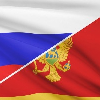The voting on a vote of no confidence in the Government of Mil Djukanovic ended
This is an automatic translation.
Click here to read the publication in the original language.
After almost three marathon days of discussion, Prime Minister Mila Djukanovic's government received support in the country's parliament. Only 62 deputies took part in the voting, of which 42 voted in support of the government, 20 voted against.
The day before there was a split among the ruling coalition, which includes the Democratic Party of Socialists (DPS), led by Prime Minister Milo Djukanovic and her younger partner, the Social Democratic Party (SDP), led by Parliament Speaker Ranko Krivokapich.
Recall that to recognize the government legitimate, the Prime Minister needed to collect 41 votes.
During the three days of the debate, the Montenegrin public watched the furious dialogues, now the former coalition partners of the DPS and SDP, especially their leaders, Prime Minister Milo Djukanovic and Speaker of the Parliament Ranka Krivopatic.
In the end, Djukanovic thanked the SDP for working together for the last 18 years. Thus, he put an end to further cooperation with Krivopatic, whose party must now step aside to the side of the opposition.
As the prime minister said during the discussions, he personally, if it turns out that Krivokapich does not have a majority in the parliament, will take the initiative for his dismissal, since, as he said, there are no cases in the world where the parliament is presided by the one who does not represent the parliamentary majority.
Meanwhile, the deputies of the Democratic Front refused to participate in the discussion, and monitored the voting on the screen installed in front of the Montenegrin parliament building. The party takes a tough stance against the membership of Montenegro in NATO and organizes, in connection with this, the protest movement since September this year.
After announcing that the regime should not be persuaded, but eliminated, the "Front" organized a regular protest from the last Sunday at the parliament's walls, whose activity, nevertheless, declined noticeably towards the end of the three-day discussion of the issue of trust to the government. So, if on the first day of the debate the opposition managed to gather about 300 people for a rally, on the second day, no more than 200, and by the election outcome, the number of protesters was calculated only by dozens of protesters.
The decisive role in the process was played by the votes of the opposition party Positive Montenegro, which supports the course of the authorities for European integration and membership in the NATO bloc. As we wrote earlier, the partners from the European Parliament led by the Green Party during the last three-day meeting in Brussels with the head of the party, Alexander Raznatovich, also supported the "Positive" government support for the government in the past voting.
Throughout the three days preceding the vote, the party was under severe pressure from the rest of the opposition, accusing it of betrayal.
On the eve of the first day of voting, "Positive Montenegro" proposed its plan to get out of the situation, the main condition under which the party is ready to support the government was the entry of opposition representatives into the leadership posts of ministries. The plan, however, was not adopted by the other opposition parties that accused the "Positive" of betrayal.
Milo Djukanovic, in his closing speech, said that he accepts the conditions of the "Positive" and is ready to provide the opposition with ministerial portfolios, moreover, he is ready to offer the place of the vice-premier of the government, which decided the outcome of the vote on the vote of confidence in the Cabinet of the Prime Minister.
Over the past two decades, Montenegrin politics has not undergone, in fact, any changes in the structure of power. Yesterday, the Prime Minister, having accepted the proposal of "Positive Montenegro", created the first precedent, calling on representatives of the opposition to the seats of ministers.
In addition, he allowed the possibility of holding a referendum on the accession of Montenegro to the NATO bloc, for which Russia insists, stating that although the constitution of Montenegro does not require it, however, it does not prohibit it.
The decision to hold a referendum will be made by the new composition of the country's parliament.#VitoSergejevic
This is an automatic translation.
Click here to read the publication in the original language.






































